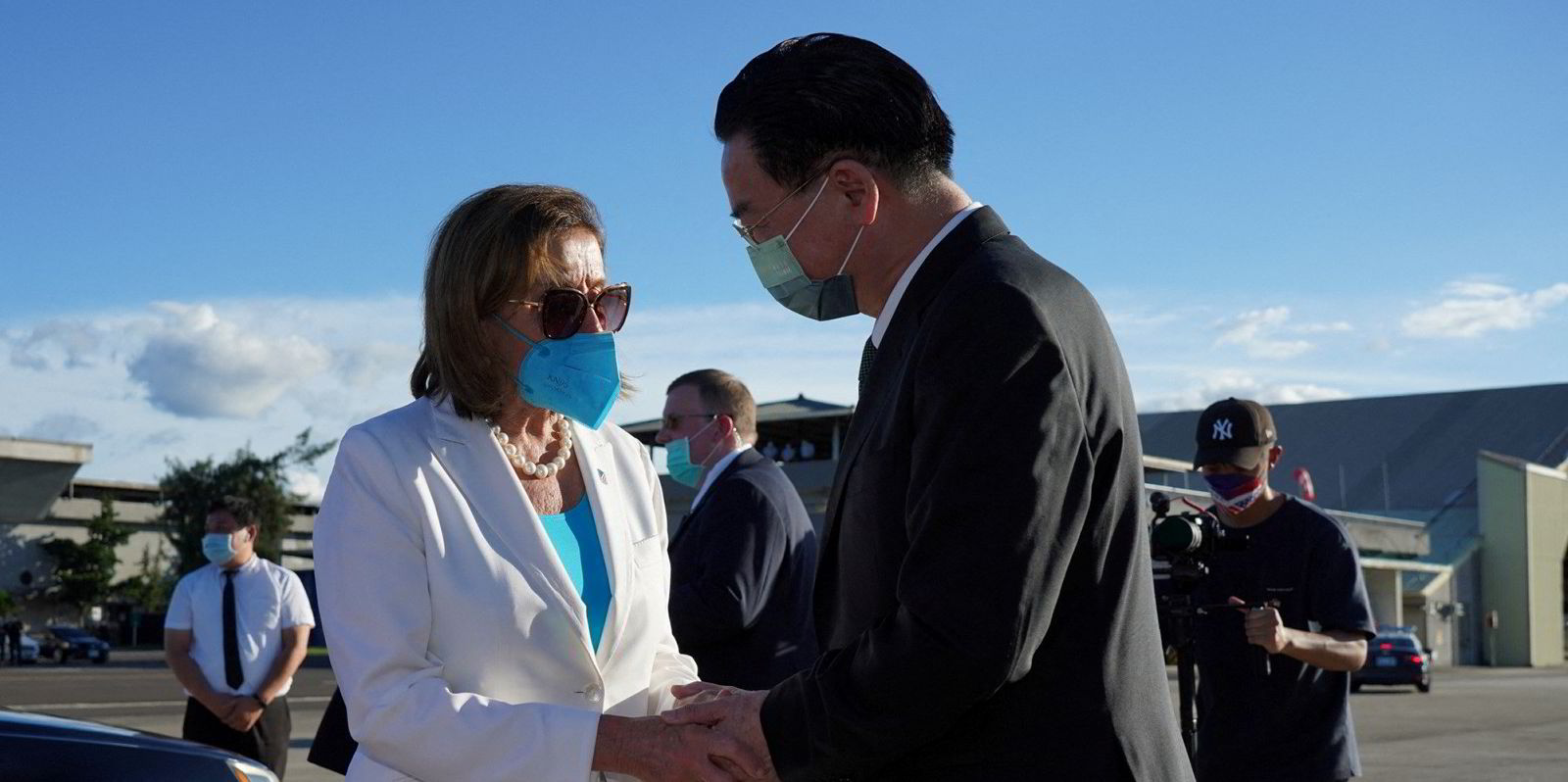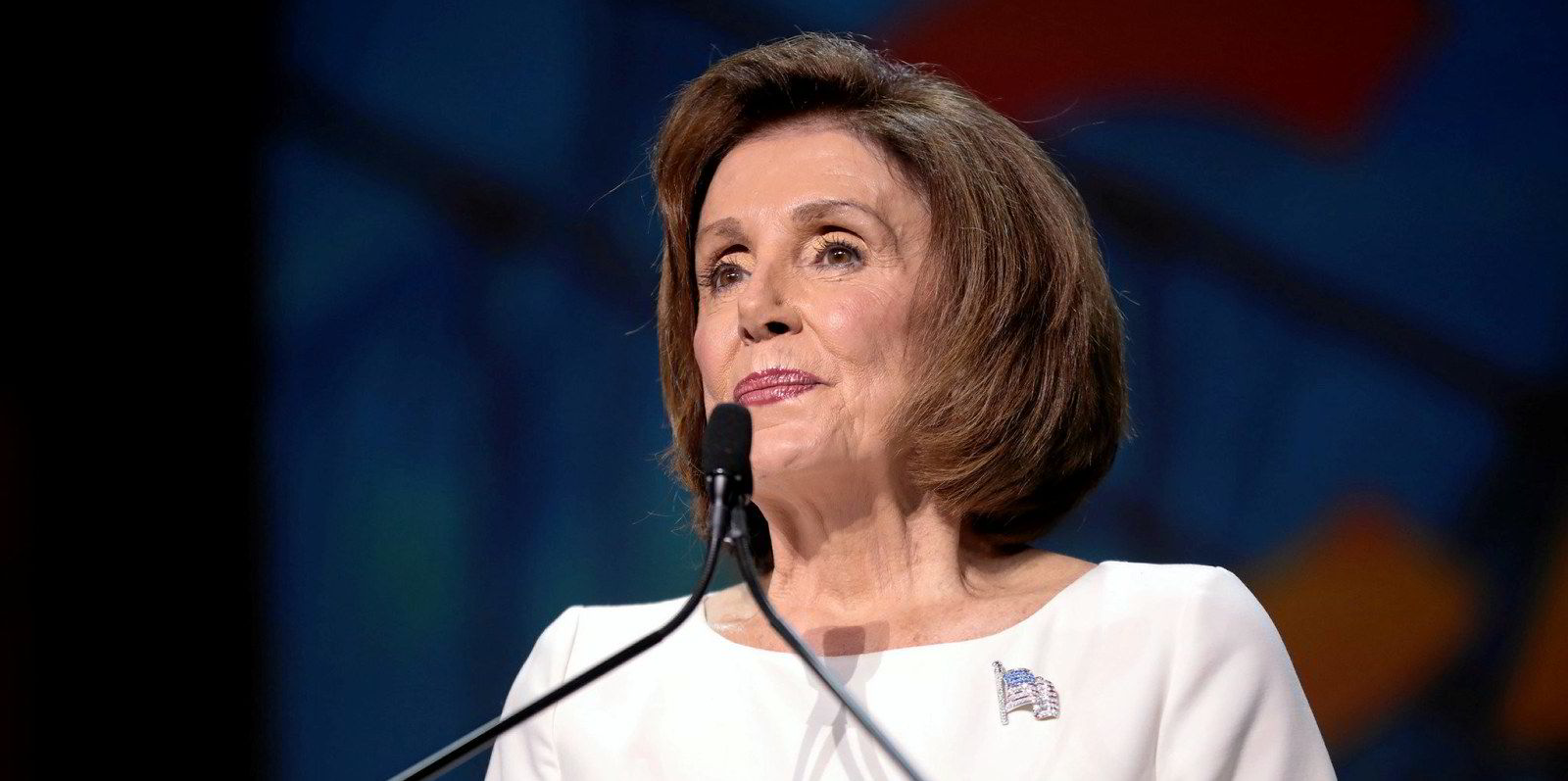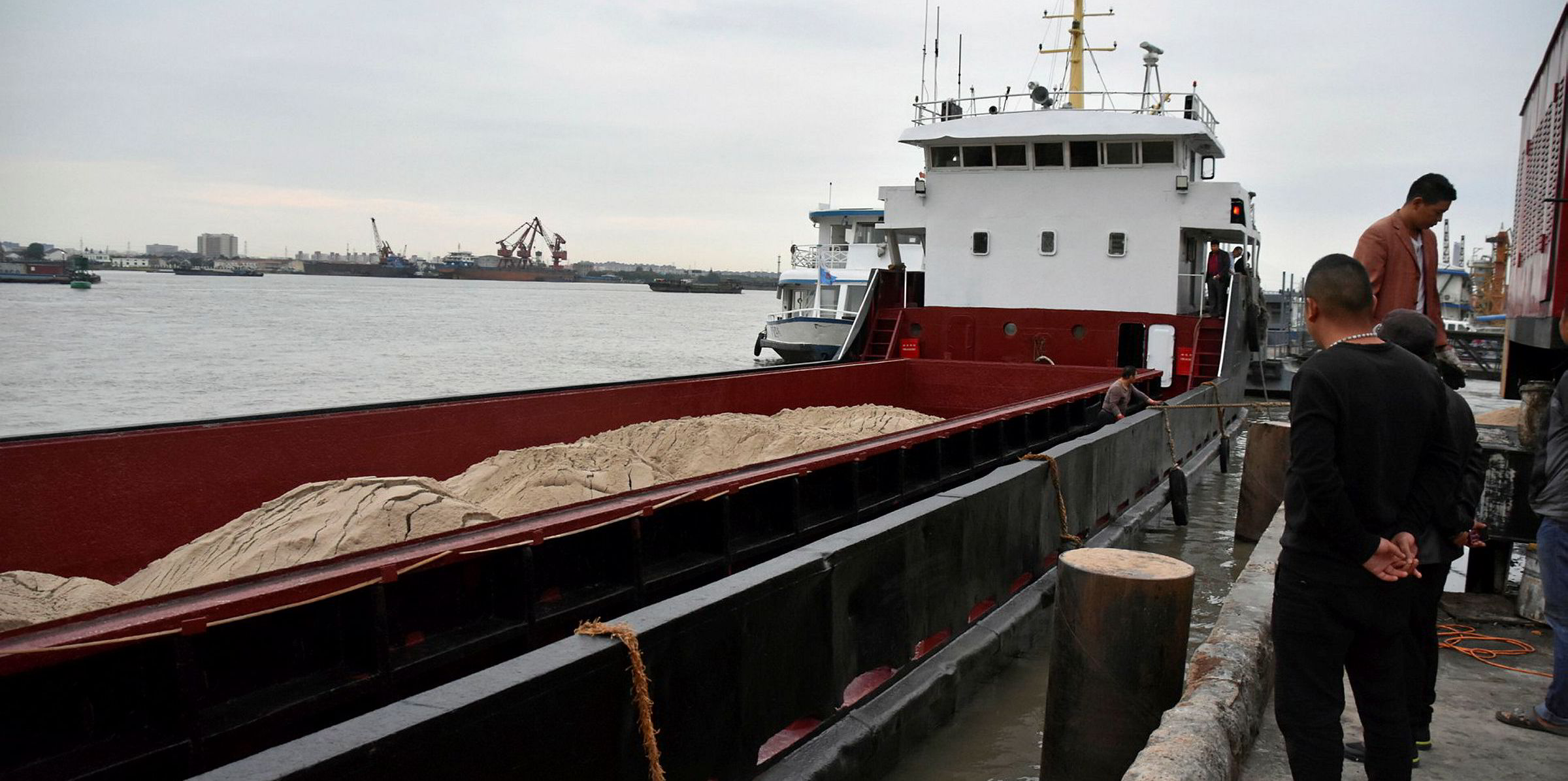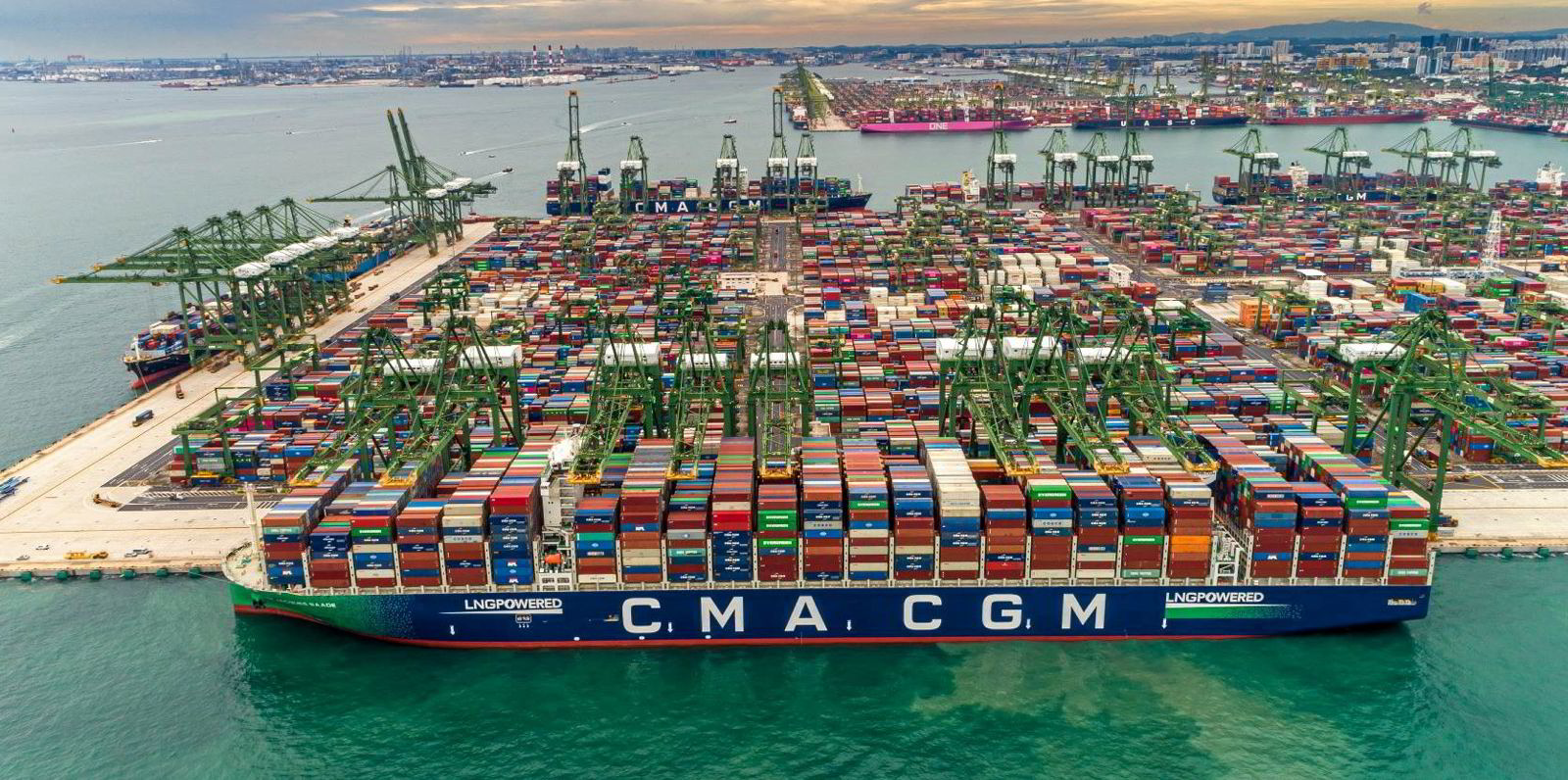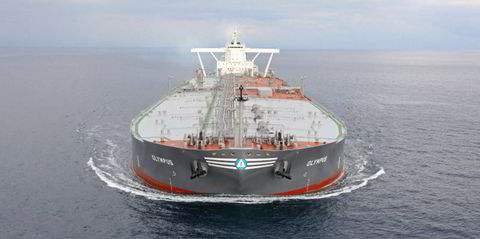Taiwan’s defence ministry claims that Chinese military exercises scheduled to take place from Thursday to Sunday will create a sea and air blockade of the island.
The live-fire exercises, seen as a retaliatory move against US House of Representatives speaker Nancy Pelosi’s visit to Taiwan this week, will be conducted in six regions, including waters in the southwest, east and southeast of the island that China regards as a renegade province.
Taiwanese defence spokesperson Sun Li-fang said some of the drills will breach Taiwan’s territorial waters and threaten international shipping lanes.
One of the areas of the planned drills appears to be less than 20 km from the Port of Kaohsiung in southern Taiwan.
The situation was deemed serious enough on Tuesday for Greek security provider Diaplous Group to issue a warning for ships transiting the Taiwan Strait to exercise caution as tensions rise.
Despite this, a number of shipowners and ship managers whose vessels operate in the area, including Evergreen Marine and Wan Hai Lines, two of Taiwan’s larger liner companies, told TradeWinds that they had not received official notifications or instructions from flag states, local authorities or insurers about potential risks.
All said they are observing developments, but claimed they are not unduly alarmed.
Amit Kumar Rahul, head of Indian Ocean and Pacific operations at Ultrabulk, said the company is continuously analysing the situation.
“We will decide what to do when the picture becomes clearer over the next few days,” he said.
Representatives at other companies would talk to TradeWinds only on a non-attributable basis because they either were not authorised to speak to the media or preferred to stay off the record until they had communicated their concerns or plans with customers.
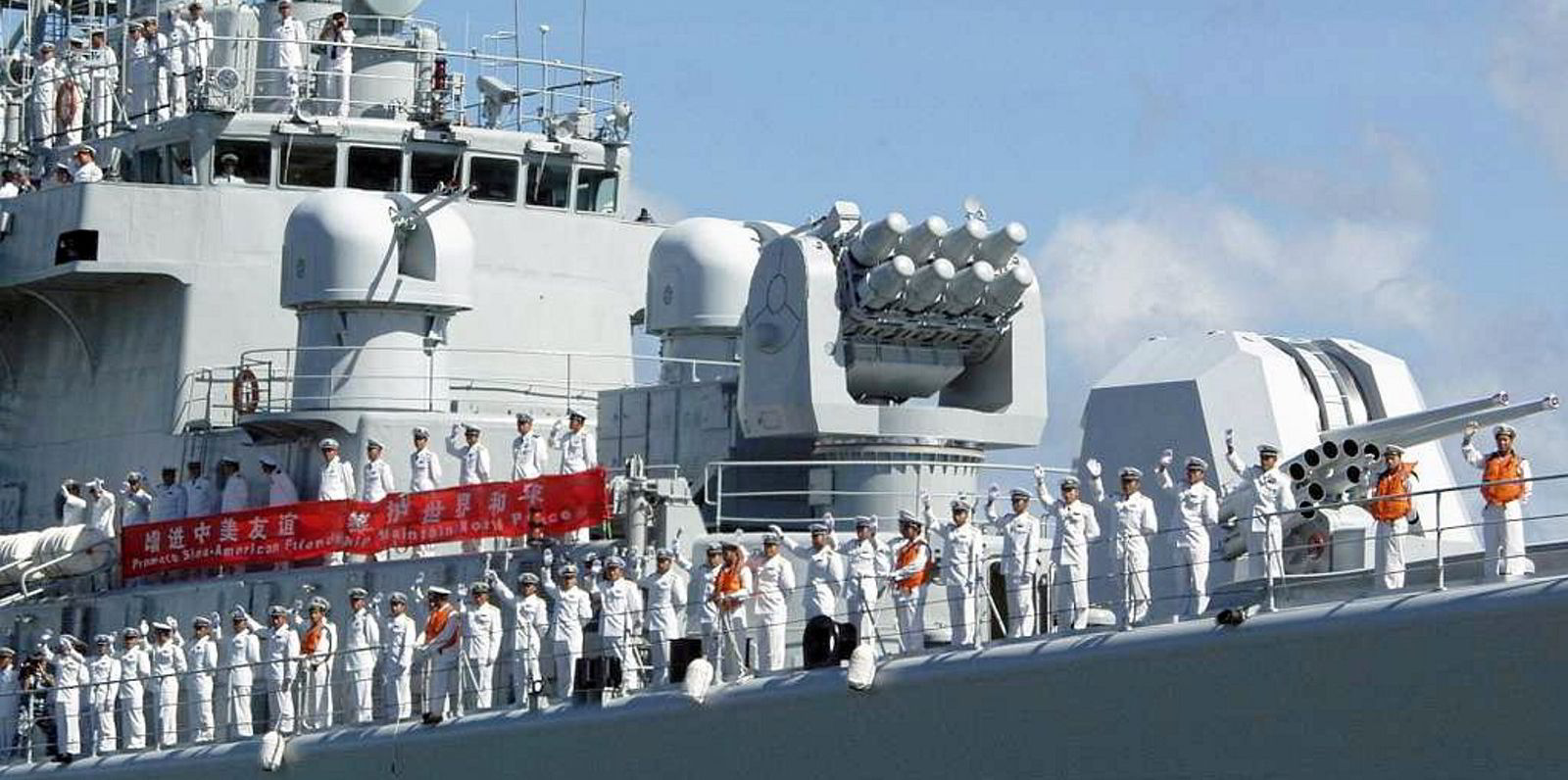
“Of course, we are very concerned and looking at contingency plans,” said a source at one Singapore-based shipping conglomerate.
Some container and dry bulk players expressed concern that a de facto blockade of Taiwanese ports, even for only a few days, would lead to delays in cargo operations in Taiwan and China.
Delays at Chinese ports were described as already being bad enough.
One Chinese bulker owner also expressed concern about the planned military operations, claiming that the deviation of vessels is inevitable.
Cross-strait shipping is already feeling the impact of the rising tensions.
China is Taiwan’s largest trading partner, with bilateral trade amounting $328bn in 2021.
Taiwan holds a sizeable surplus against China, with exports from the island exceeding imports by $172bn.
China has suspended some food imports from Taiwan, including citrus fruits and fish.
More alarmingly, in a move that could have serious worldwide repercussions, China announced on Wednesday that, with immediate effect, it is banning the export of natural sand to Taiwan, traditionally a handysize bulker trade.
Natural sand is a key component in the manufacturing of semiconductors, which are one of the island’s main exports. Taiwan is responsible for around half of global semiconductor manufacturing output.
Sabre rattling or precursor to war?
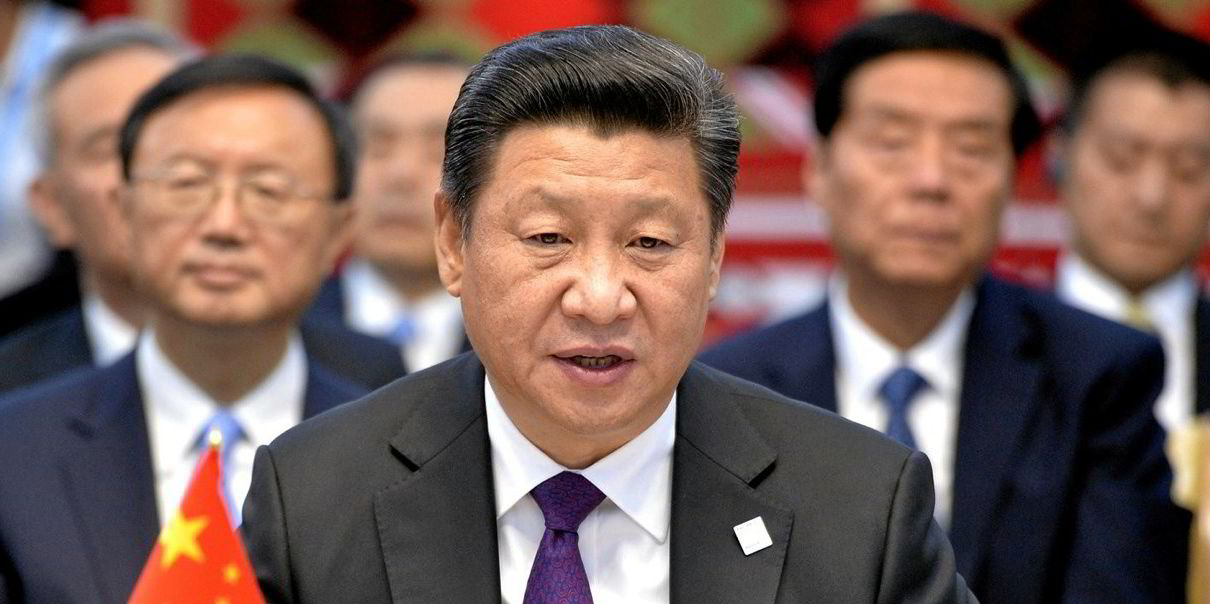
Tensions between China and Taiwan have frequently flared since the Chinese nationalist government fled to Taiwan after being overrun by communist forces in 1949.
China continues to regard the island as a renegade province but has for the most part adopted a pragmatic approach and left it alone, despite its stated intention to eventually bring it back under Beijing’s rule.
The Chinese government has occasionally rattled its sabre through military drills close to the island in response to suggestions by Taiwanese officials of moving towards full independence.
Tensions have ratcheted up significantly under Chinese leader Xi Jinping, whose repeated rhetoric calls for reunification, by force if necessary.
Xi’s government has frequently used China’s economic power to isolate Taiwan diplomatically and coerce its main trading partners into severing their business ties.
The US has long pledged to support Taiwan militarily should China ever invade, and frequently draws Beijing’s wrath when large military and commercial business deals are announced.
Asian business leaders and political analysts were quoted by media outlets this week as saying they believe the scheduled military drills are just another sabre-rattling exercise and tensions will eventually die down.
This confidence is not widely shared by political analysts elsewhere, who have described Xi as far more aggressive and less cautious than previous Chinese leaders.
